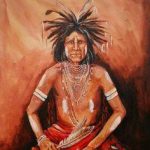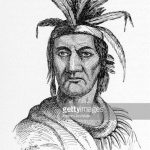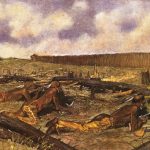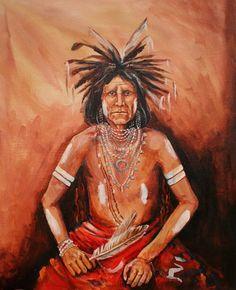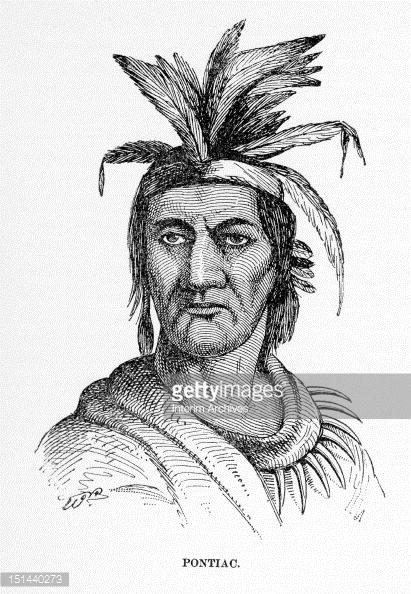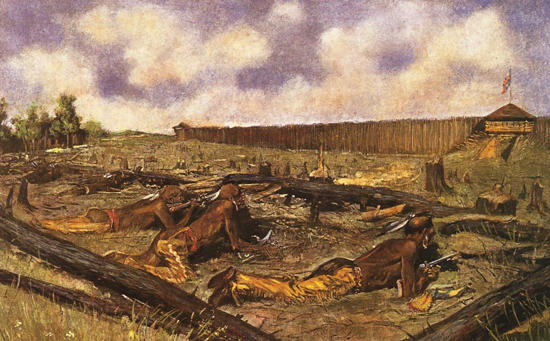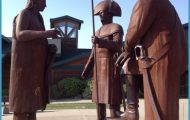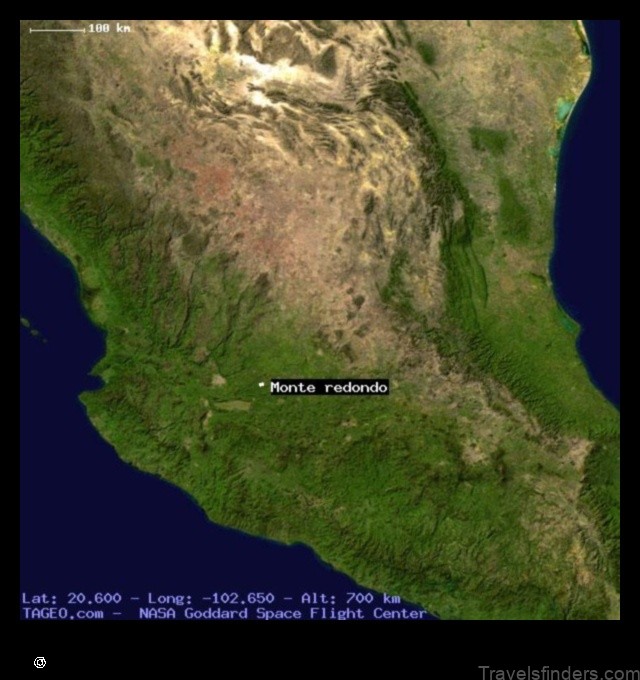Little is known about the early life and career of Pontiac, an Ottawa war leader most closely associated with a series of frontier attacks known as
Pontiac’s Rebellion. Euro-American recreations of his life in the eighteenth and nineteenth centuries made him one of the country’s most famous Native
Americans, a symbol of fierce resistance to European colonization, and a leader of a racial struggle for the Great Lakes region.
Pontiac’s legacy is more complex and interesting than the two-dimensional portrayals allow. It deserves to be understood within the context of mideighteenth-century
America.
Setting the Stage: North America in 1760
The Great Lakes region was in a state of turmoil in 1760. The French had evacuated the region and were in the process of losing North America to the
British entirely, leaving their thousands of native allies in the lurch. Native communities through the Ohio River Valley and the Great Lakes, many of whom
were already refugees from earlier conflicts, struggled to come to grips with the new political reality of native life in America. There would no longer be two
imperial powers that Native Americans could play off against one another. Furthermore, the region’s native peoples had failed to create any sort of
confederation that could prevent or slow Anglo-American expansion. The British who were moving into the region did not treat the native peoples on the
same terms as the French had.
The British who occupied the former French forts and trading posts were under the orders of Major General Jeffery Amherst, who stopped reciprocal
gifting and restricted the sale of powder. Native peoples had generally viewed the French as symbolic fathers, but the British did not behave according
to these long-established rules. They were intent on conquest.
At approximately the same time, Neolin, also known as the Delaware prophet, began to preach a message of pan-American Indian unity and rejection of
European culture that appealed to many Native Americans, including Pontiac. Neolin had a vision of heaven that contained only native peoples. He
proclaimed that at one time, the native peoples had direct access to heaven, but that their path had been blocked because of their increasing contact with
white people and dependence on them. Borrowing from Christianity, Neolin advocated a return to the old ways. His message was taken up by many
different Native Americans, however, and, in fact, led away from tradition.
Pontiac accepted the teachings of Neolin, but he modified them slightly: he focused Neolin’s mistrust of white people in general more tightly on the British.
He also mediated Neolin’s desire for Native Americans to give up white ways. Pontiac was a war leader, to be sure, but he was also a deft politician, who
was able to bring together different strands of anti-British sentiment.

